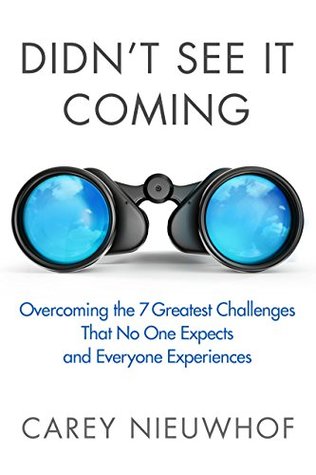More on this book
Community
Kindle Notes & Highlights
Read between
September 30 - October 3, 2018
Cynicism begins not because you don’t care but because you do care.
Most cynics are former optimists.
Knowledge often brings sorrow because the more you know, the more you see life for what it really is.
You no longer see people for who they are. You no longer see situations for what they could be. You just see potential hurt. Past pain will become future hurt if you let it. So you don’t let it.
Perhaps most disturbingly, cynicism begins to infect your relationship with God. When you close your heart to people, you close your heart to God.
What I needed to understand is what you need to understand: cynicism is actually a choice. Cynics aren’t born; they’re made. Life doesn’t make you a cynic; you make you a cynic.
Cynics never change the world. They just tell you why the world can’t change.
Sometimes people struggle with the Bible and Christianity because it’s so real. How can Christianity be founded on hope when so much of the story is violent, oppressive, and bleak? I mean, have you ever read the Bible? It contains plenty of tragedy, trauma, and treachery. You might think that flipping through biblical stories would make you more cynical, not less cynical.
Of all people on earth, Christians should be the least cynical.
One thing I’ve noticed again and again is this reality: curious people are never cynical, and cynical people are never curious.
If you listen longer than most people listen, you’ll hear things most people never hear.
What if competency doesn’t determine capacity?
Highly competent people get taken out day after day. And even if they don’t get taken out, their potential is still capped.
Your competency leaves the first impression, but your character leaves the lasting one.
While it’s easy to spot hypocrisy in others, it’s much harder to see it in ourselves. That’s because we judge ourselves by our intentions and other people by their actions.
Blaise Pascal was right: “The sole cause of man’s unhappiness is that he does not know how to stay quietly in his room.”
work twice as hard on your character as you do on your competency.
Research shows that the average person hears as many as two hundred lies a day and that “60% of people lie during a typical 10-minute conversation and…average two to three lies during that short timeframe.”
Jesus had a very different end in mind for the spiritually mature. He didn’t define maturity by how much you know. He defined it by how much you love.6
Competency gets you in the room. Character keeps you in the room.
But, like you, it also means that too often I’m more focused on the people I’m not physically with than the people in the room.
What if, despite its challenges and dangers, technology isn’t good or evil but simply reveals and amplifies what’s already there?
A great irony of our age is that the typical regulation to use a high-occupancy vehicle (HOV) lane on a major highway in North America is a car carrying two people.
One hundred years ago, when my grandfather was a young man, people were lucky if they read the equivalent of fifty books of information in a lifetime.
The challenge is not to resist change but to learn how to thrive in the midst of it.
Excuses
Reasons
explanations
Irrelevance happens when the language, methods, or styles you use no longer connect to the culture and people around you.
Rick Warren said it well: “When the speed of change around an organization is faster than the speed of change inside the organization, the organization becomes irrelevant.”
When it comes to staying healthy, for instance, I always try to convince myself I can do the minimum amount of exercise that will allow me to eat the maximum amount of meat.
Incremental change brings about incremental results. Furthermore, incrementalism inspires no one. Radical change brings about radical results. If you’re in a rapidly changing world, small amounts of personal incremental change are likely not enough.
unimplemented change will become regret.
As Tim Keller put it, “When work is your identity, success goes to your head, and failure goes to your heart.”
A mentor of mine, Terry Wardle, once told me that ministry is a series of ungrieved losses.1
Maintaining health in all five major areas of life (spiritual, emotional, relational, physical, and financial) has become a top priority for me.
Marketing 101 is understanding what marketers call WIFM: “What’s in it for me?” (They pronounce it “whiffim.”) Every good marketer knows that if a product is ever going to sell, the marketer has to answer the WIFM question well.
WIFM is that the value of the product matches or exceeds its price point.
If you want to beat emptiness, find a mission that’s bigger than you.
A number of years ago, a thought gripped me: Nobody really wants to work for me.
Money isn’t the mission. Money funds the mission.
“Without knowledge of self there is no knowledge of God.”
Daniel Goleman shook the world with a new theory: that emotional intelligence was as or even more important to success than intellectual intelligence.2 He argued that this is true in life and in leadership. His theory on emotional intelligence has shaken up the business world (and arguably the world). Goleman identified five main components for emotional intelligence, chief of which is self-awareness. In fact, if you grow in self-awareness, the other four factors of emotional intelligence (self-regulation, motivation, empathy, and social skills) become so much easier to master.


